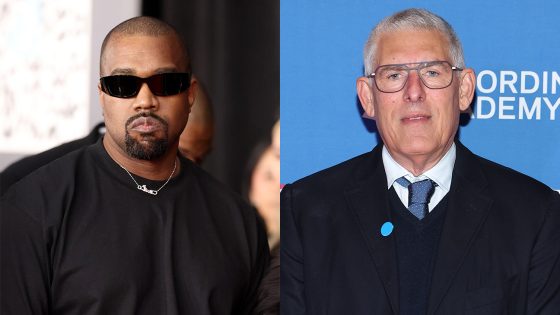Lyor Cohen, a prominent figure in the music industry, has openly addressed Kanye West in a heartfelt letter. Dated February 12, 2025, Cohen expresses his disappointment over West’s recent actions involving antisemitic rhetoric. How can influential artists use their platforms for good instead of harm?
- Lyor Cohen's influential role in hip-hop.
- Kanye West's connection to Def Jam Recordings.
- Cohen's transition to Warner Music Group.
- Open letter addressing Kanye's antisemitic actions.
- Importance of sensitivity in public influence.
- Shared legacy between Jewish and Black communities.
Lyor Cohen Calls Out Kanye West for Antisemitic Comments and Actions
What does it mean for an artist to wield such power? In his letter, Cohen emphasizes the importance of sensitivity in public discourse, especially regarding historical tragedies like the Holocaust. He reminds West of the shared history between Jewish and Black communities in music, urging him to promote understanding instead of division.
Cohen’s Legacy and Influence in the Music Industry
As a key player at Def Jam Recordings and now YouTube’s global head of music, Lyor Cohen has seen the evolution of the industry. His career began in the 1980s, and he has shaped the careers of numerous artists. Here are some key points about Cohen’s influence:
- Played a vital role in the rise of hip-hop culture.
- Transitioned the music industry into the digital age.
- Focused on bridging gaps between artists and streaming platforms.
- Advocated for responsible messaging in music.
The Importance of Responsibility in Music
Artists like Kanye West have immense power to shape opinions and influence culture. Cohen’s letter serves as a reminder that with great power comes great responsibility. Artists should consider how their words can affect marginalized communities. By promoting unity and understanding, they can use their platforms for positive change.
Understanding the Shared History of Jewish and Black Communities
The collaboration between Jewish and Black artists has a rich history, particularly in music. From jazz to hip-hop, these communities have supported each other through cultural exchanges. Cohen urges West to reflect on this legacy and to use his influence to foster love and understanding rather than sow discord.
In conclusion, Lyor Cohen’s open letter to Kanye West highlights the critical need for artists to be mindful of their influence. As public figures, they have the power to inspire change and promote unity. Will they choose to uplift or divide?

































